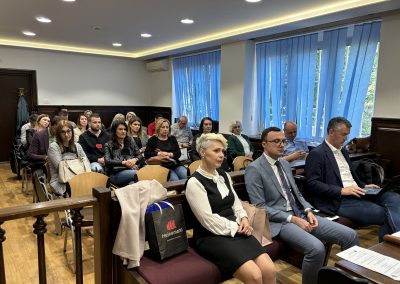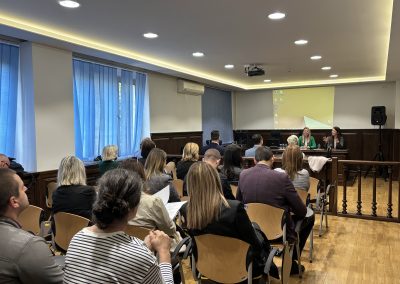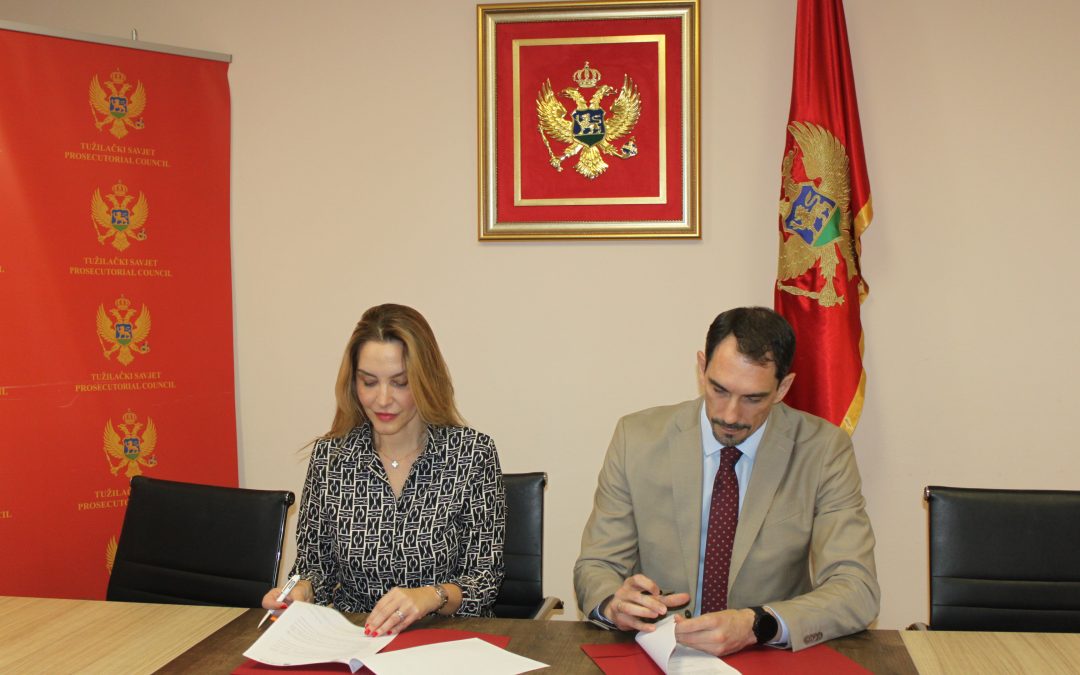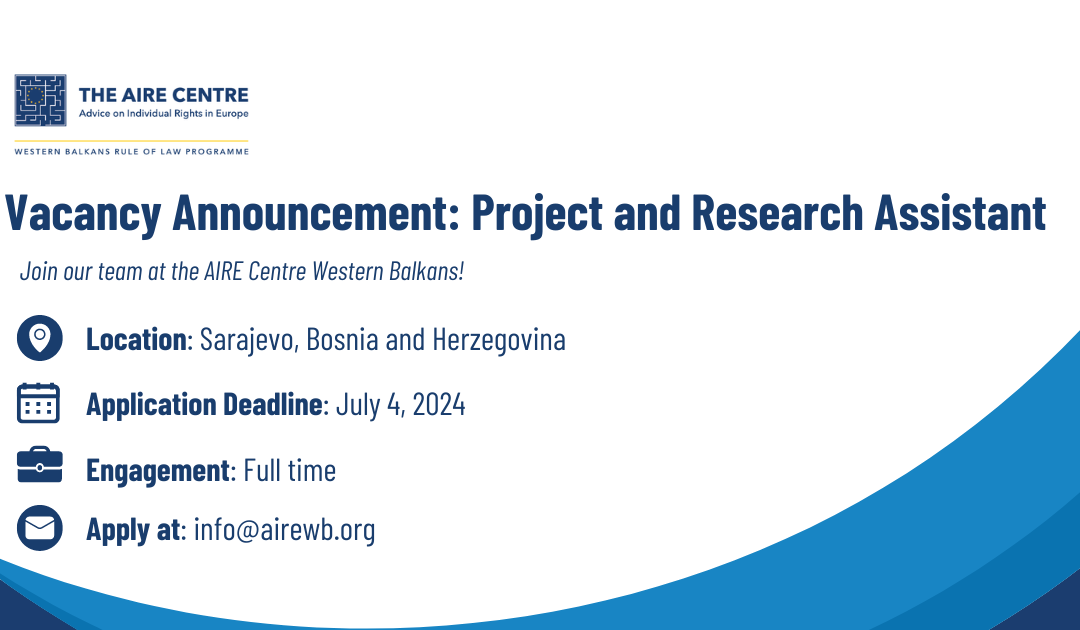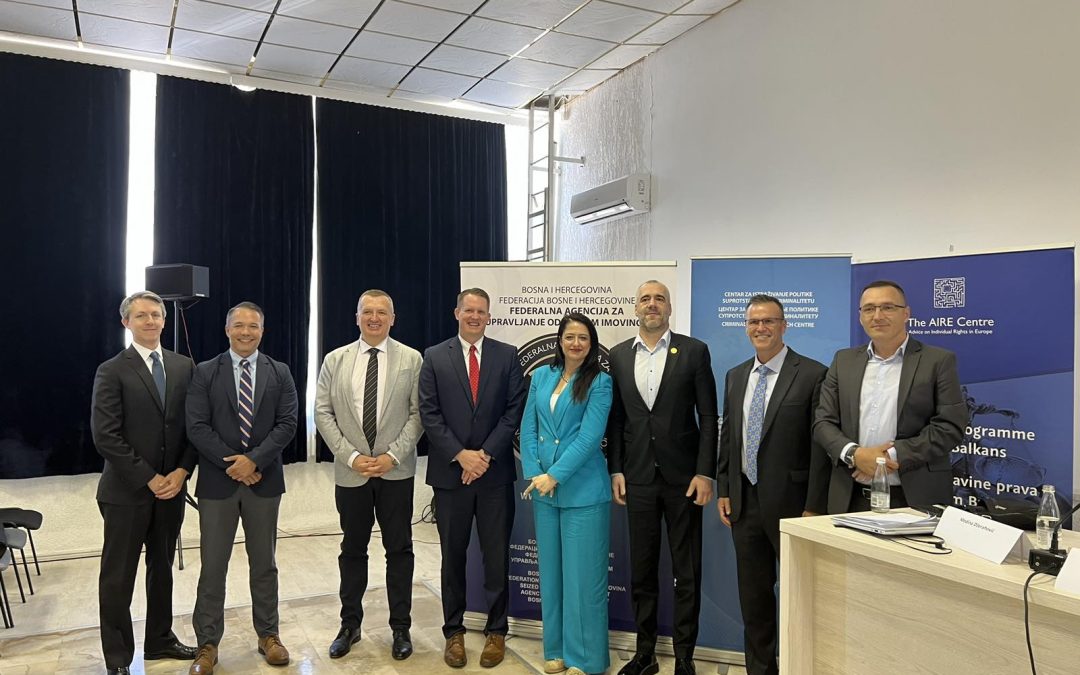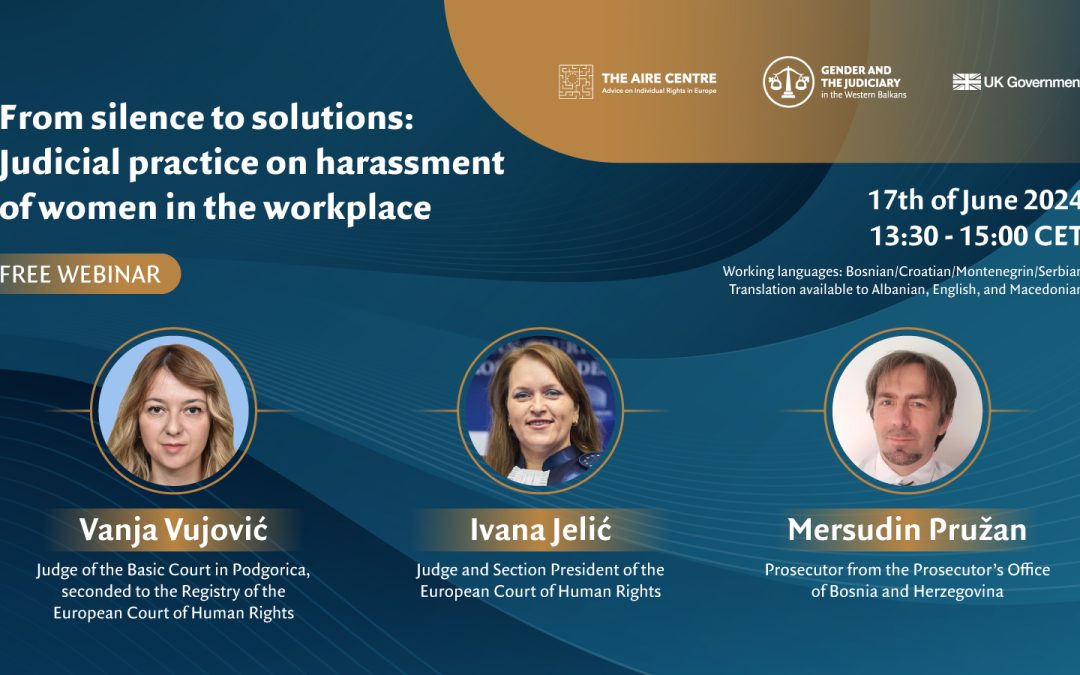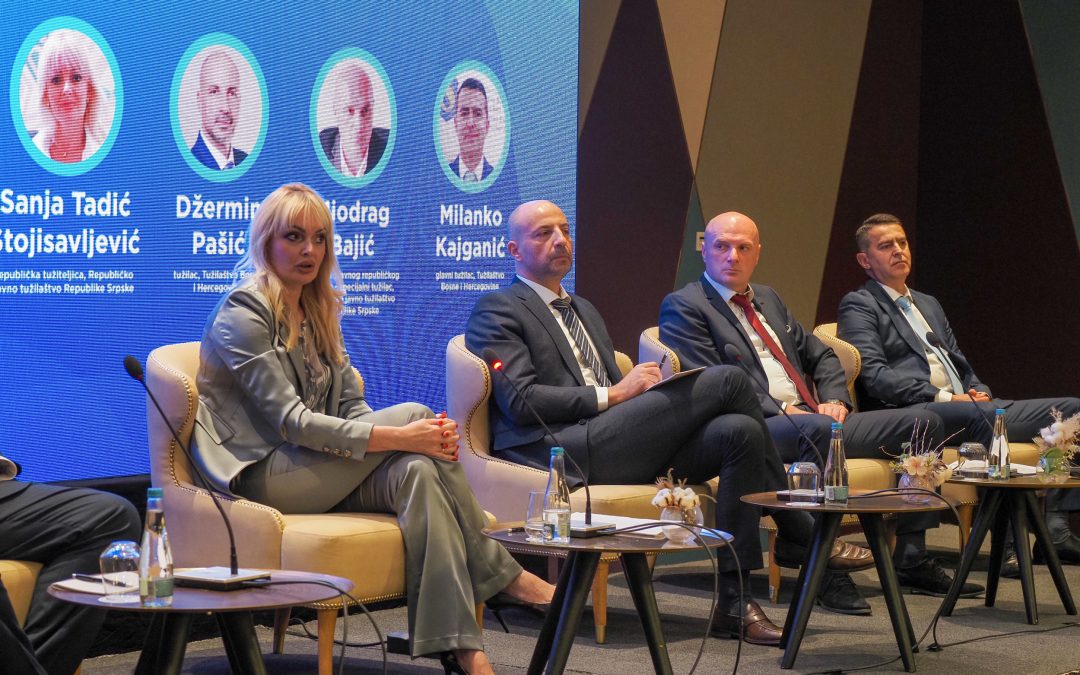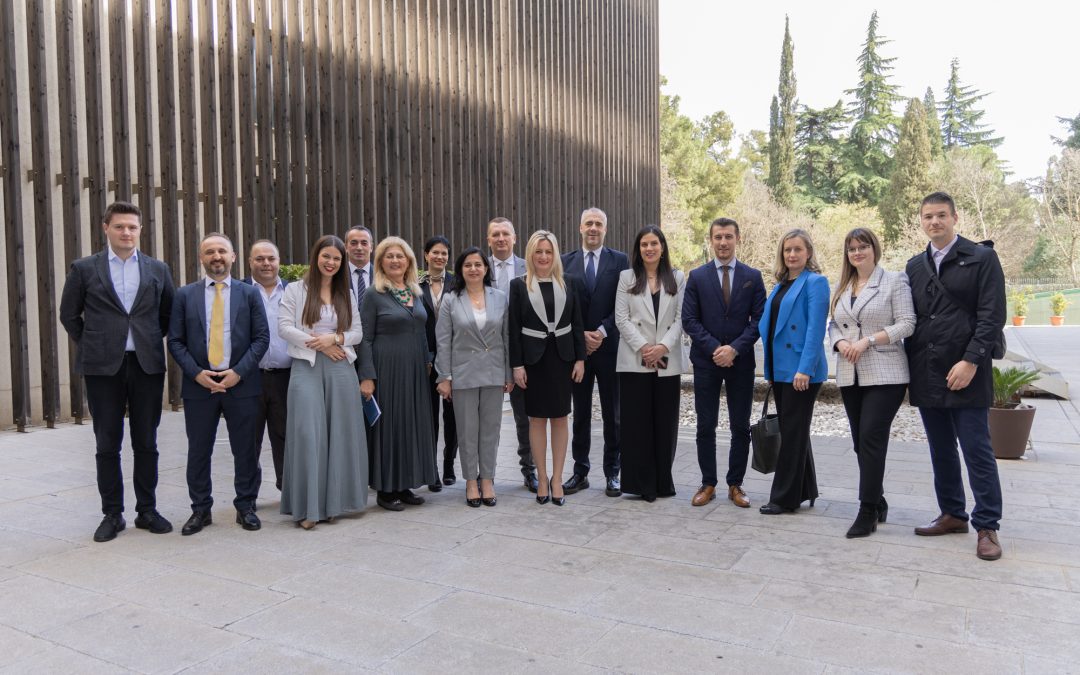Through this training, the AIRE Centre and the Centre for Judicial and Prosecutorial Training of the Federation of Bosnia and Herzegovina, supported by the Government of the United Kingdom, gathered 30 representatives from judicial, prosecutorial, and police institutions, as well as experts coming from across Bosnia and Herzegovina, to discuss the potential uses of artificial intelligence in criminal justice and strengthening the response to cybercrime.
Bosnia and Herzegovina is the only country in the Western Balkans region without a national cybersecurity strategy. The consequences of an inadequate approach to cybercrime are evident in a range of systemic and procedural problems, which hinder the prevention and prosecution of these crimes.
“Although Bosnia and Herzegovina has adopted the most important international conventions in this field, such as the Convention on Cybercrime (known as the Budapest Convention) and the Convention on the Protection of Children against Sexual Exploitation and Sexual Abuse (known as the Lanzarote Convention) of the Council of Europe, domestic legislation is still not fully aligned with these standards. The lack of a systematic and comprehensive approach to cybercrime is also evident in the serious lack of resources and expertise in judicial and police institutions”, said Martina Raguž, project manager of the AIRE Centre.
Raguž emphasised that improving the knowledge of the judiciary and police about new technologies used by organised criminal groups will be a significant focus of the trainings conducted by the AIRE Centre. “New technologies also create new opportunities to trace these crimes, and the judiciary must be prepared and educated to use them effectively in criminal proceedings.”
Božidarka Dugonjić, a judge of the Supreme Court of the Federation of Bosnia and Herzegovina, stated that Bosnia and Herzegovina still remains at a low level of cybersecurity.
“The reason behind this is the generally low level of awareness about the dangers of cybercrime, and consequently, a low level of investment in protective measures, a weak legal framework that is not aligned with the European Union’s legal framework, an insufficient number of cyber experts, and similar issues”, explained Judge Dugonjić. “It is essential for Bosnia and Herzegovina to improve its legislative framework to more effectively combat cybercrime. In the criminal law context, this primarily refers to aligning the criminal laws with the provisions of the Budapest and Lanzarote Conventions, as well as addressing issues related to the definition of cryptocurrencies and their seizure in criminal proceedings”, said judge Dugonjić.
The growing public interest is fueling the idea of applying artificial intelligence in the judiciary. Hajrija Sijerčić-Čolić, Emeritus Professor of the Faculty of Law, University of Sarajevo, explained that although the possibility of using artificial intelligence in determining criminal liability is still firmly rejected, this technology has already emerged as a tool in criminal justice, for example in the United States, where it assists judges in assessing the likelihood of an accused person committing further crimes.
She also emphasises that artificial intelligence can contribute to the efficiency of criminal proceedings by assessing the presence or absence of the risk of re-offending as a reason for detention or in resolving minor offences, where specific measures are already being taken, for example, in Estonia, and certain research is being conducted in Slovenia.
“The rise of new digital technologies demands a response at the national, regional, and international levels, as only through the involvement of a wide range of stakeholders is it possible to develop a globally trusted model of artificial intelligence governance. It is important to note that the Council of Europe is currently finalising the ‘Artificial Intelligence, Human Rights, Democracy and the Rule of Law Framework Convention’ which we expect to be completed during this year”, added Professor Sijerčić-Čolić.
“Artificial intelligence will bring significant changes to various parts of the legal system” said Nasir Muftić, assistant professor at the Faculty of Law, University of Sarajevo.
“This technology is already being used to commit crimes, either by carrying out existing criminal acts in a more sophisticated manner or by introducing entirely new criminal offences. When it comes to criminal justice, artificial intelligence can become a useful tool but it can also bring numerous risks. AI-powered programs can be significant for collecting evidence, determining the intent of the perpetrator of a criminal offence, and for data analysis and facilitating the work of judges and prosecutors,” said Muftić.
Muftić also added that such changes are already present to some extent in various European countries, and certain issues are being considered at the EU level. “Therefore, it is crucial for Bosnian-Herzegovinian lawmakers and the judicial community to become acquainted with the latest developments. The most important legal instrument that has captured the attention of the wider public is the ‘AI Act’ in the EU, which regulates the use of this technology comprehensively, including its use in criminal law. However, it does not provide all the answers, which is why states must continue to address this issue.”
Saša Petrović, an inspector at the Federal Police Administration, warned that artificial intelligence is already being used as a tool for sexual extortion.
“At the moment, the majority of reports involve sextortion, where individuals produce sexually explicit videos using artificial intelligence (deepfake), subsequently using them to blackmail victims under the threat of public release. We anticipate a rise in reports concerning the misuse of this technology. However, the readiness to address these cases falls short at police, prosecutorial, and judicial levels, exacerbated by the absence of adequate legal measures to regulate such abuse,” explained Petrović.
Arben Murtezić, Director of the Center for Judicial and Prosecutorial Training of the Federation of Bosnia and Herzegovina, emphasised that “We must not allow our notorious problems and other priorities to hinder our efforts to keep pace with global trends.”
“Cybercrime and the application of artificial intelligence are pressing issues for modern justice systems as well as for contemporary societies as a whole. We are fortunate to have domestic experts and the support of partners to ensure that training in this area does not lag in quality behind what is offered in the most developed countries and international organisations”, said Murtezić.
Professor Sijerčić-Čolić added that it is of particular importance for Bosnia and Herzegovina to align its legislation, as well as practices for detecting and proving cybercrime, with recent global developments. The challenges faced by judicial authorities in prosecuting computer-related crimes are significant because the likelihood of identifying perpetrators is considerably lower than with traditional criminal offences, due to the possibility of concealing the perpetrator’s identity and actions within computer networks.
“In addition, it is important to remember that the means of execution in the realm of high technology are constantly evolving, providing perpetrators with a broad range of tools for committing crimes and concealing their tracks. Given the observed challenges and obstacles, continuous education on reliable standards of artificial intelligence, its challenges, developments in other countries, and its application in criminal justice is necessary”, said Professor Sijerčić-Čolić.
